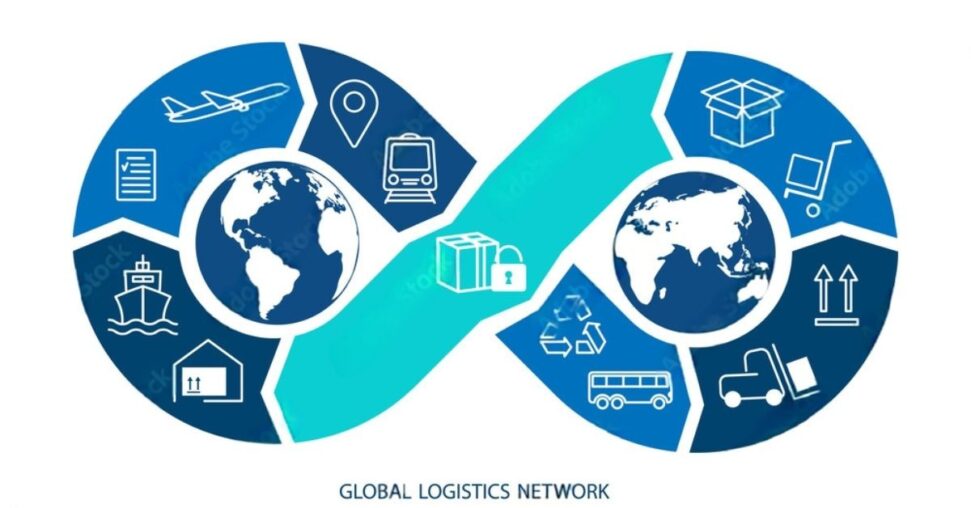In an increasingly connected world, having a strong logistics network is more than a business necessity, it is a source of competitive advantage. Logistics is no longer just about moving goods from one place to another; it plays a strategic role in customer satisfaction, cost control, market expansion, and brand reputation. Businesses that build resilient, agile, and efficient logistics networks position themselves ahead of competitors and create long-term success.
How Logistics Networks Impact Business Performance
A logistics network covers every aspect of the supply chain, including sourcing, transportation, warehousing, inventory management, and final delivery.
When all these elements work seamlessly together, businesses can respond faster to customer needs, optimize costs, and minimize disruptions.
A weak logistics network, on the other hand, leads to delays, increased expenses, and frustrated customers. In a competitive market, every second and every dollar count, making strong logistics a clear differentiator.
The Importance of Trucking Companies in Logistics Networks
Reliable trucking companies are a vital component of strong logistics networks. Trucks remain the most flexible and widely used method for transporting goods across cities, states, and regions.
Whether businesses are moving retail products, manufacturing components, or agricultural supplies, trucking companies provide critical last-mile and regional delivery solutions.
Partnering with experienced trucking providers ensures consistent transit times, reliable service, and the ability to scale operations as business needs grow.
Freight Forwarding Services Building Global Connections
When companies need to move goods across international borders, freight forwarding services step in to streamline the process. Freight forwarders manage the complexity of global shipping by coordinating multiple carriers, handling customs documentation, securing insurance, and navigating regulatory challenges.
They provide businesses with the confidence to expand into new markets while minimizing the risks and challenges typically associated with international logistics.
Different Types of Freight for Different Business Needs
Understanding the types of freight helps companies choose the right transportation solution for each product and customer need. Full truckload (FTL) is ideal for large shipments requiring dedicated transport, while less-than-truckload (LTL) provides a more cost-effective option for smaller loads.
Specialized freight types like refrigerated or hazardous materials shipping demand careful planning and specialized handling. Choosing the correct type of freight ensures faster deliveries, cost savings, and product safety, helping businesses better serve their customers.
Flatbed Trucking and Heavy Cargo Solutions
Certain industries rely heavily on flatbed trucking services for transporting oversized or heavy equipment that cannot fit in standard trailers. Construction companies, energy projects, and industrial manufacturers frequently move machinery, steel beams, and building materials using flatbeds. By working with trusted flatbed trucking providers, businesses ensure that even the most challenging shipments are delivered safely, on time, and without unexpected costs.
The Role of Technology in Strengthening Logistics
Modern logistics networks are heavily powered by technology. Real-time tracking, predictive analytics, automated warehouse management, and smart route planning allow businesses to streamline operations and quickly adapt to changing conditions.
Technology not only enhances efficiency but also provides transparency to customers, improving trust and loyalty. Investing in technology-enabled logistics solutions allows companies to predict disruptions, optimize costs, and deliver a better overall service experience.
Building Resilience Through Logistics Planning
Unforeseen disruptions such as natural disasters, economic instability, or global health crises can severely impact supply chains. Companies with strong logistics networks have contingency plans in place to reroute shipments, switch suppliers, or adjust inventory levels quickly.
Building resilience into logistics operations protects businesses from costly downtime, missed deadlines, and reputational damage. Flexibility and proactive planning are key traits of market leaders in today’s unpredictable world.
Sustainability in Logistics as a Competitive Edge
Sustainability is becoming a competitive advantage in logistics. Companies that prioritize eco-friendly transportation, reduce carbon emissions, and use green packaging are more attractive to consumers and business partners alike.
]Practices such as optimizing delivery routes, adopting electric vehicles, and collaborating with sustainable trucking companies are not only good for the planet but also enhance brand image and customer loyalty. In the future, logistics sustainability will become a deciding factor in supplier selection and consumer purchasing decisions.
Global Expansion Made Possible by Strategic Logistics
For businesses seeking international growth, logistics is the gateway to new markets. Reliable freight forwarding services enable businesses to reach customers across continents without worrying about customs barriers, documentation errors, or shipping delays.
Using the right types of freight and specialized services like flatbed trucking services ensures that goods move efficiently, regardless of complexity. Logistics is not just a cost of doing business—it is a strategic investment in long-term success.
Conclusion: Logistics as a Growth Engine
Logistics is more than a background operation; it is a vital driver of business growth, customer satisfaction, and competitive strength. Businesses that prioritize building strong, resilient, technology-driven logistics networks will enjoy faster delivery times, lower costs, and stronger customer loyalty.
Whether through trusted trucking companies, expert freight forwarding services, a deep understanding of types of freight, or specialized flatbed trucking services, logistics will remain a critical pillar of business success well into the future.
FAQs About Strong Logistics Networks
Why are logistics networks important for businesses?
Strong logistics networks improve efficiency, reduce costs, and increase customer satisfaction, offering a powerful competitive advantage.
What role do trucking companies play in logistics?
Trucking companies provide flexible, reliable transportation solutions, ensuring goods reach customers on time and supporting nationwide market expansion.
How do freight forwarding services support global business?
Freight forwarding services manage the complexities of international shipping, helping businesses expand into new markets with ease and efficiency.
Why does understanding types of freight matter?
Choosing the right types of freight ensures faster delivery, lower costs, and better handling of products, improving overall logistics performance.
When should businesses use flatbed trucking services?
Flatbed trucking services are essential for transporting oversized, heavy, or irregularly shaped cargo that cannot fit into traditional trailers.




